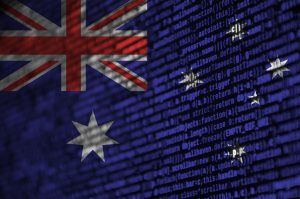In 2014, the Australian government made a promise to meet the recommendation by the Financial Action Task Force (FATF) to include Designated Non-Financial Businesses and Professions (DNFBPs) – commonly known as lawyers, accountants, and real estate agents – under the umbrella of anti-money laundering and counterterrorism finance laws (AML-CTF).
Known as Tranche II, this commitment is critical to protecting Australians because these gatekeeper professions are targets for criminals to facilitate money laundering. Despite the serious economic, social, and reputational implications, eight years later, the promise has not been fulfilled.
Australia is an international laggard on Tranche II, alongside Haiti and Madagascar as one of only three countries that have failed to act. To neglect to implement tighter anti money laundering is to allow billions of dollars each year handled by gatekeepers to potentially fund terrorism; the trafficking of humans, animals, and drugs; and child exploitation.
Through the government’s inaction, Australia is at risk of being placed on FATF’s grey list of countries that don’t meet international anti-money laundering standards. These countries are effectively a sharemarket for criminals – easy to access, set, and forget. By not acting on FATF’s recommendations, Australia risks the integrity of the financial system, making it harder for companies to secure international capital. A report by The International Monetary Fund estimates that “capital inflows decline on average by 7.6 percent of GDP” when on the FATF grey list.
When push comes to shove, it is unlikely that the government would leave Australia susceptible to being placed on such a list. But the question needs to be asked: Why has Australia been pushing back on anti-money laundering regulation for 15 years?
The subsequent recommendations from the Legal and Constitutional Affairs References Committee’s inquiry into Australia’s AML/CTF regime are largely a statement of the obvious and should have been acted on earlier. We have seen the Real Estate Institute of Australia claim that there has been little “evidence or data to suggest” corruption and money laundering in its sector, but this argument is difficult to reconcile with both global trends indicating that this is commonplace and the many red flags raised by the Australian government and law agencies.
Industry lobbyists have argued additional regulation would disproportionately burden small and medium enterprises (SMEs). Of course there will be an impact on SMEs, but that’s not to say they won’t be supported. The growth of regtech and service providers in Australia is providing sophisticated and affordable compliance technology. Additional due diligence must be carried out, but the eradication of fundamentally immoral operators is something businesses should be proud to do – it’s the cost of doing good. These regulations will help all businesses get on “Team Australia,” protecting fellow Australians from the implications and risks of money laundering.
In the wake of Russia’s invasion of Ukraine, we have seen the global momentum and effectiveness of sanctions, bringing into sharp focus the moral imperative of ironclad and broad AML-CTF regulation. This is not just the responsibility of the top end of town and government regulators.
The advancement of Magnitsky-like laws here in Australia enabled the Australian government to take a stance against the recent actions of the Russian president and his cronies. It operates in a way that penalties can be imposed for wrongful acts committed outside the legislating country’s jurisdiction.
As global kleptocracy expert Casey Michel writes; “Kleptocracy isn’t simply the act of cleaning money, it also includes exploiting those funds to boost the reach and reputations of regimes, oligarchs, and criminals. This can only occur systematically, which is it cannot exist without culpable lawyers, real estate agents, and financial professionals.”
With this in mind, fulfilling Australia’s Tranche II promise will help reduce the impact of foreign sanctions on Australians because more entities will be subjected to vetting, excluding the corrupt and criminal. The Committee recommendation of the establishment of a beneficial ownership register would also be key.
In our global economic system, money moves like water; it finds the least path of resistance to flow. If Australia’s system accommodates the corrupts’ desires, their money will find its way here.
Tranche II should be treated with the same political fervor that Australian politics had for advancing Magnitsky sanctions reform on human rights abusers. By moving now, albeit years late, we can bolster the foundations of our democratic institutions, which are increasingly exploited and exposed to the corrosive effects of corruption.

































